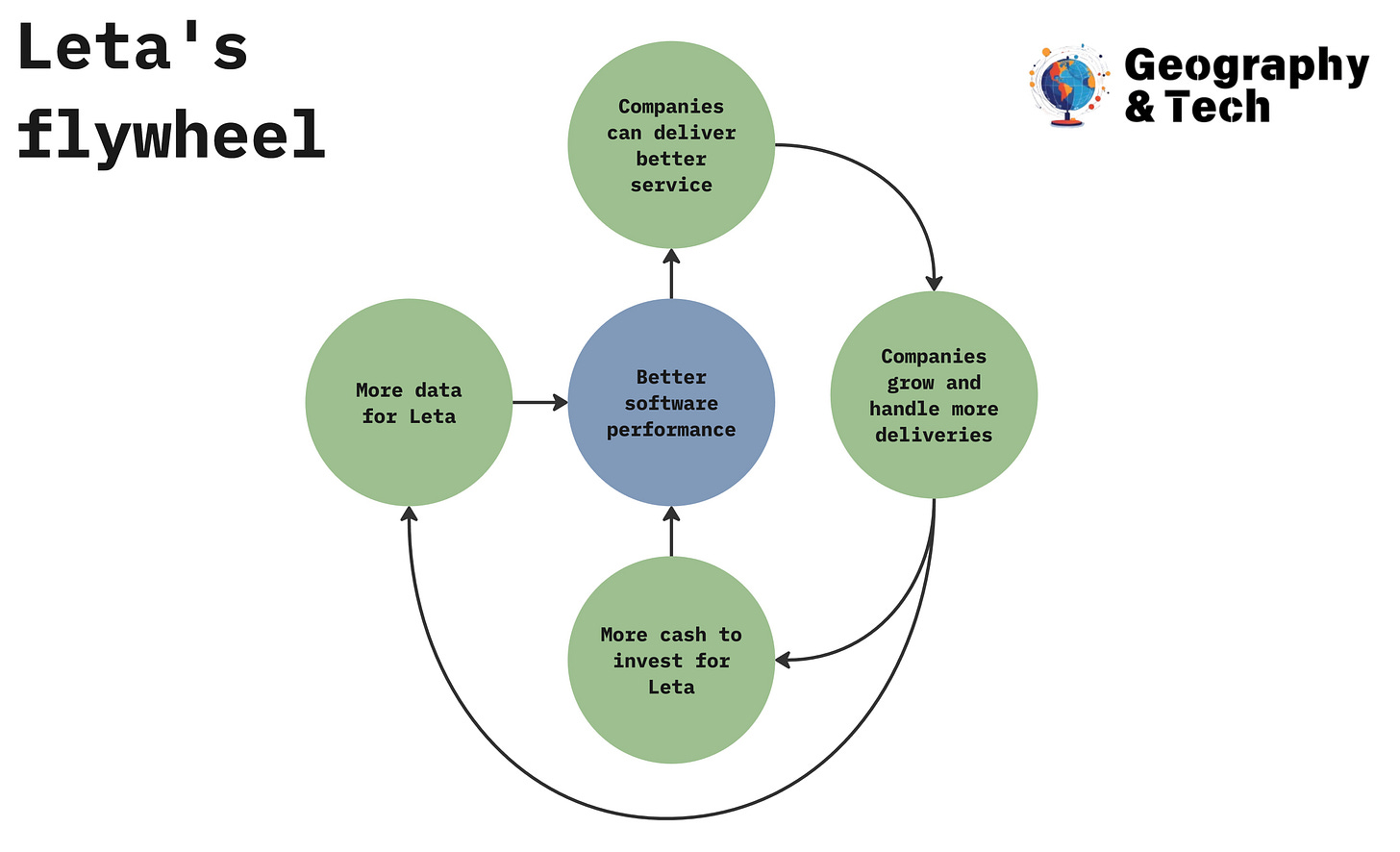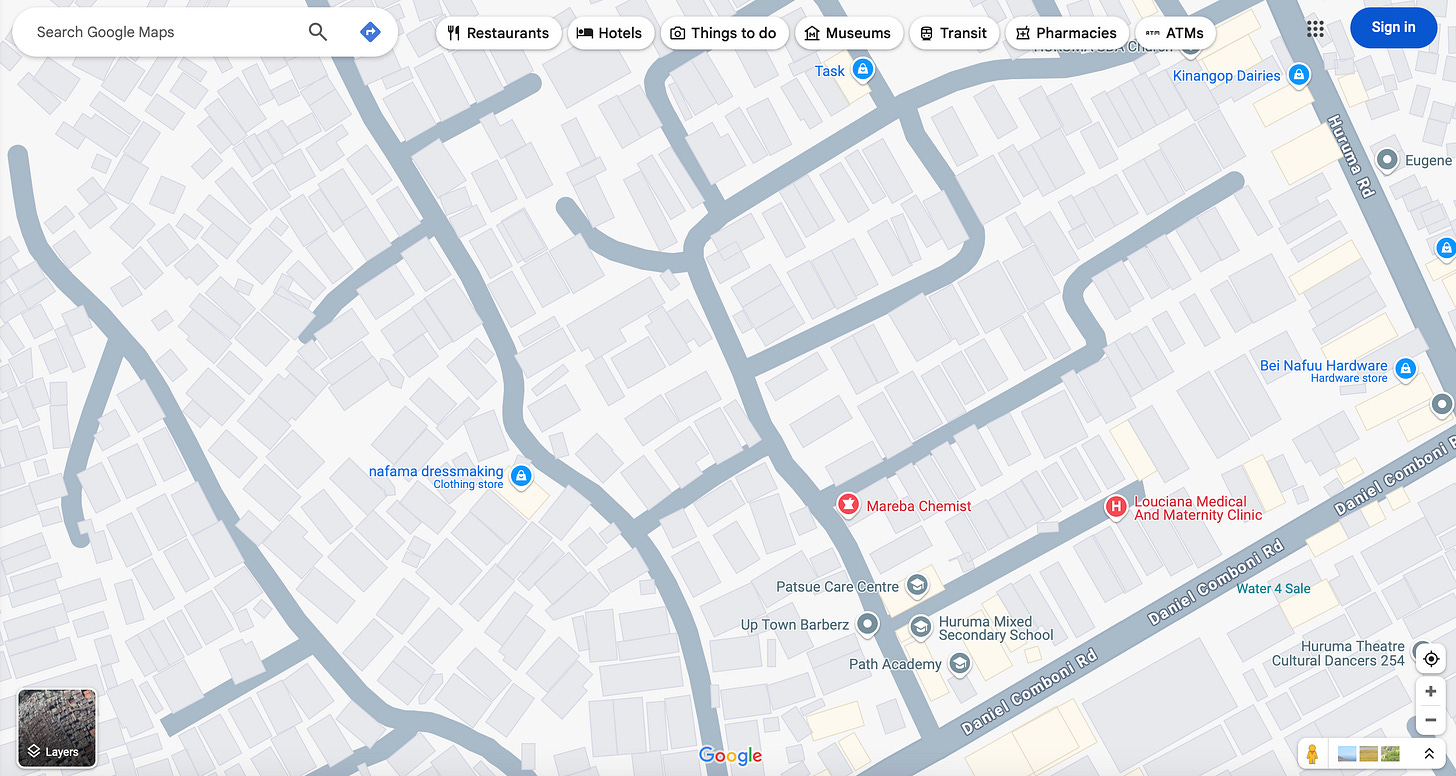It’s Tuesday, and today we’re covering Leta, a logistics startup out of Kenya that announced a $5 million seed round led by Speedinvest, with participation from Google’s Africa Investment Fund and Equator VC.
The Product
Leta helps delivery businesses—whether they’re running on-demand or scheduled deliveries—optimize their logistics operations. It tackles two fundamental problems:
Delivery costs. Many businesses rely on suboptimal routes or inefficient loading operations, which drive up delivery costs—costs that are usually passed on to the customer.
Speed and tracking. Whether you’re an end consumer or a business buyer, you want to know where your order is, when it’ll arrive, and what happens if something goes wrong. You also want your order to get to you as fast as possible.
To solve these issues, Leta built a platform that integrates with clients’ ERP, POS, and OMS systems, pulling in live data on products and customers.
Delivery costs
Leta tackles delivery costs by optimizing routes—and it’s not just about finding the best path from point A to point B. It uses AI and machine learning to identify opportunities for order batching, eliminate unnecessary crisscrossing, and connect vehicles to the right warehouses. Fewer vehicles, lower costs.
By tracking deliveries over time, Leta also gives clients a clear picture of their daily logistics spending, helping them plan future logistics budgets more effectively.
But it’s not just about saving—Leta also helps clients discover new revenue opportunities. For example, if a business sees growing demand in a certain area, it can increase its warehousing capacity there. Or if demand patterns differ across locations, clients can optimize product assortments at each warehouse.
Speed and tracking
For businesses without a delivery fleet, Leta offers a driver matching feature. Once an order is processed, a driver can be found in under five minutes—so driver availability isn’t a bottleneck.
But speed doesn’t stop at dispatch. A big boost comes from automation. Order data syncs automatically, and the platform determines loading order (e.g., oldest vs. newest inventory), creates a manifest and dispatch plan, and updates driver routes in real-time.
Regardless of whether a business has its own fleet, Leta improves customer satisfaction through a robust, built-in tracking system. It offers real-time visibility from dispatch to delivery, with two-sided tracking that keeps both the business and the customer in the loop.

The Business Model
Unlike many logistics startups, Leta doesn’t operate its own delivery fleet. Instead, it works with clients who have their own drivers or partners with third-party delivery providers. For the partners, that means better vehicle utilization. For Leta, it means lower costs—and less risk.
Sustainability is also core to how Leta runs. The company partners with e-mobility providers like eBee, helping customers manage emissions. And with e-bikes, fuel costs can be close to zero—charging them is practically free.
This asset-light model has helped Leta scale fast. In addition to Kenya, it now operates in Nigeria, Uganda, Zambia, and Zimbabwe. Since 2022, deliveries have grown from 500,000 to 4.5 million, and the number of trucks under management jumped from 2,000 to 7,400.
Leta monetizes the platform on a per-delivery basis. That means its revenue doesn’t just grow by adding new clients—it also grows as existing clients make more deliveries. And that creates a flywheel effect: the better Leta’s software performs, the better service its clients can offer. As those businesses grow and handle more deliveries, Leta benefits directly through increased usage.
The Local Angle
Problem #1 — Infrastructure
There are a bunch of infrastructure issues plaguing Kenya—and Africa more broadly resulting into two problems:
Finding your destination is tough. Many roads in Nairobi don’t have names. In 2016, data showed that 58% of deliveries were delayed and 25% failed entirely due to unclear addresses. The government planned to fix this back in 2016, but only started rolling out a formal system in 2023.
Even if you know where you’re going, getting there is hard. It takes 26 minutes to travel just 10 km in Nairobi. That’s 86th out of 501 cities globally—and the second-worst in Africa. Whether the cause is a booming population, poor road quality, bad planning, or all three, the result is the same: delays.
Problem #2 — The delivery industry itself
The delivery landscape in Kenya faces two big issues.
First, it’s fragmented. There are tons of small last-mile companies, and that makes it hard to rely on any one of them. Imagine a company with 10 drivers—if one’s sick and another quits, their capacity drops 20%. So unless you’re working with a big operator, you’re better off using a platform like Leta.
Second, driver training is often lacking. Some business owners claim drivers lack professionalism and customer service skills. While anecdotal, even the government admits there are gaps in driver skills and attitude. Leta helps fix that by formalizing and automating delivery processes—and by choosing partners carefully.
The result — high delivery costs
According to Leta founder Nick Joshi, delivery costs in Africa make up 50% of the cost of goods. And estimates from the African Development Bank suggest that high transport costs add 75% to the price of goods in Africa.
And those costs hit on multiple levels:
On the micro level, expensive logistics hurt e-commerce. A Nielsen study found that 70% of consumers were reluctant to reorder online due to delivery issues. And 66.7% of Kenyan retail businesses considering delivery platforms say delivery costs shape their product pricing.
On the macro level, logistics inefficiencies hurt development. Poor infrastructure limits regional trade and makes the entire economy less efficient. A World Bank study found that a 1% increase in global value chain participation leads to a 1% increase in per capita GDP. If manufacturers can’t ship goods on time, and retailers can’t get them to customers, consumption drops—and so does growth. A bit simplified, but you get the point.
The Roadblocks
Partner dependency
Since Leta plans to keep expanding, every new country means finding new logistics partners. That’s inherently risky. And the partnership model also limits where Leta can go—if there’s no reliable partner, they simply can’t enter the market.
Market readiness
Kenya’s e-commerce market is estimated at somewhere between $1–$3 billion—not huge for a country of over 50 million people. Adoption will be slower simply because many businesses aren’t ready to adopt a solution like Leta.
Limited Talent Pool
Hiring engineers and data scientists with expertise in logistics optimization in East Africa isn’t easy. Hiring ones who also understand other regions is even harder.
Infrastructure unpredictability
Infrastructure quality is, in part, what enables Leta: if the roads were perfect and the transportation system efficient, there’d be no need for a company like Leta. But the pendulum can swing the other way too—how quickly can Leta’s algorithms adapt to a collapsed bridge or a burst pipe flooding the street?
The Upside
Scalability
Yes, finding partners takes work—but scaling software is so much easier than scaling hardware. You don’t need to buy land, deal with import rules, or find storage. A local lead and a few salespeople, and you’re in business.
High switching costs and data network effects
If Leta works for you and drives real economic impact, there’s no reason to leave. And as it gathers more data about your business, your customers, and your delivery patterns, it only gets more efficient—raising switching costs even further. The longer clients stay, the more valuable the platform becomes for everyone involved.
New revenue streams
Given how low-tech and fragmented the delivery space still is, there are lots of add-on opportunities: driver training, cargo insurance, fleet financing, fulfillment consulting, payment processing… just to name a few.
Leta as a competitive edge
Making logistics a competitive advantage usually requires massive scale. But in a market where competitors can’t even guarantee delivery, just having Leta on your side can be a serious edge.
The Takeaway
Leta’s value prop is super simple: get stuff from A to B, faster and cheaper. But the real hard things about this business are in the details—how to pick the best route? What happens in rush hour? What if a tree falls on the optimal road? How many deliveries can one driver carry at once?
And all these questions get way more complex in the chaos of an African city.






